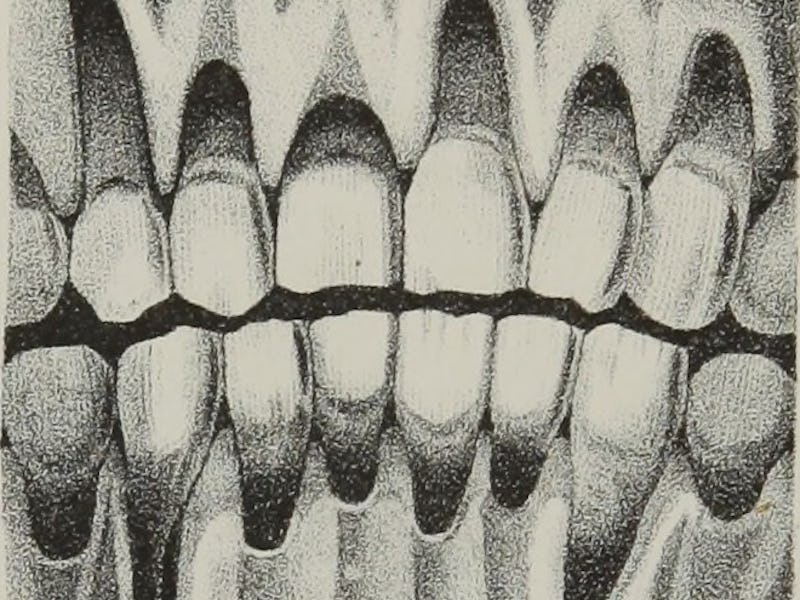Is Whitening Bad for Teeth? We Asked Five Experts
Does whitening teeth also remove some of what keeps them healthy?

If you’re anything like me, celebrity smiles and Colgate ads make you feel guilty about your regular consumption of coffee, red wine, tea, and all the other fun things we’re told will stain our teeth.
And the solution seems so easy – a box of whitening strips from the supermarket shelf tells us so. But does whitening teeth also remove some of what keeps them healthy? And might they be more easily stained afterwards?
We asked five experts if whitening is bad for teeth.
Five out of five experts said no…
But they all had a pretty big caveat. It’s safe provided it’s done by a dentist. So for this you’re looking at upwards of a few hundred dollars, rather than just a trip to the supermarket.
Here are their detailed responses:
Alexander Holden, Dentist
Provided a custom-fitted tray is used to keep the whitening agent in contact with the teeth and away from the mouth’s delicate soft tissues such as the gums and the oral mucosa (skin of the mouth), whitening is safe. Non-dentists can provide agents that release up to 6 percent Hydrogen peroxide; while lower than the concentrations dentists can use, this is still strong enough to cause damage if improperly used.
Kelly-Anne Hennessy, Dentist
Tooth whitening is safe if it is provided by and monitored by a registered dental professional. It’s important to have professionally-fitted dental trays and to use the correct concentration of whitening products for the correct amount of time. Some non-professional whitening products are acidic and can dissolve tooth enamel. Whitening is not recommended for people with a lot of sensitivity or who are pregnant or breast-feeding. Whitening will not whiten existing fillings.
Madhan Balasubaramanian, Oral Health Researcher
While teeth whitening can be an effective treatment for patients, it’s prudent to seek necessary guidance and expert advice from dental personnel. A trained eye can help identify patient-specific reasons behind tooth discolouration, sensitivity to gums and desired cosmetic appearance. Initial chair-side assessment in a dental facility can help uncover these issues, before a viable solution is adopted.
Teeth whitening procedures performed by dental personnel can provide a more reliable solution for patients. Home-based teeth whitening materials prescribed and monitored by dental personnel have been shown to be safe, effective and suitable for patients during their home-based whitening treatment. But this doesn’t apply to strips or gels you might find in supermarkets.
Michael Foley, Public Health
Tooth whitening is usually safe for teeth. Most genuine tooth whitening products contain hydrogen peroxide or carbamide peroxide. Higher concentrations (only available through dentists) are more effective, with longer lasting whitening. Peroxides can also cause tooth sensitivity and irritation or chemical burns to the gums, mouth and throat. But providing care is taken, whitening can be achieved with minimal risks. A few words of caution though. Not all teeth are suitable for whitening, and fillings and crowns won’t change colour, so seek advice from your dentist first.
Many products advertised as ‘tooth-whitening’ contain no peroxides, only abrasives. While they may remove tea, coffee and tobacco stains (and unfortunately even tooth enamel – some are very abrasive), they will not ‘whiten’ teeth. And finally, Hollywood white, newsreader white, and supermodel white are not natural tooth colours. Please don’t overdo it. A healthy smile is the most beautiful smile.
Rebecca Chen, Oral Health Therapist
No, but you need to be seeking the care of an oral health professional (dentist, oral health therapist, dental hygienist or dental therapist). They will first perform a thorough assessment to identify the cause of your tooth discoloration and inform you about whether in-office whitening is a suitable option for your teeth. In fact, they may provide you with better solutions. For example, if the discolouration is a result of extrinsic staining, commonly from foods, treatments to mechanically remove stains will be more effective.
Dental hypersensitivity is often a side effect from any whitening procedure. If the whitening procedure is provided by an oral health practitioner, formulations will often have remineralising agents aimed to strengthen the tooth immediately after the treatment to minimise these possible side effects.
If you have a “yes or no” health question you’d like posed to Five Experts, email your suggestion to: alexandra.hansen@theconversation.edu.au
Disclosures: Alexander is a Federal Councillor for the Australian Dental Association Inc. and occasionally works clinically within private dental practice. Kelly is employed by CQUniversity to teach in the Bachelor of Oral Health program. Under the supervision of registered dental professionals, students deliver professional tooth whitening procedures at the university clinic. Madhan is a NHMRC Sidney Sax Research Fellow in Public Health and Health Services at the University of Sydney and Kings College London. He is a full time oral health researcher, and is not currently involved in any clinical practice. Rebecca works in pediatric practice that does not offer whitening procedures.
This article was originally published on The Conversation by Alexandra Hansen. Read the original article here.